speakers
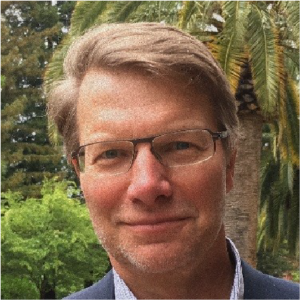
Jeff Brown
Research Fellow, Steyer-Taylor Center for Energy Policy and Finance, Stanford University
Jeff is a Lecturer at Stanford Graduate School of Business and Stanford Law School, where he teaches courses on clean energy project financing and development. He is a Research Fellow at Stanford’s Steyer-Taylor Center for Energy Policy and Finance and was a lead author of “Making Green Energy Investments Blue Chip” (2017), examining worldwide funding constraints and policy barriers to financing green energy. Serving on the Technical Advisory Board of University of Wyoming’s Enhanced Oil Recovery Institute, he advises on the nexus between carbon capture projects and sequestration in oil fields. He is also a faculty member of the Sustainable Energy Initiative of Stanford Business School.
Jeff’s Stanford research focuses on financing of carbon capture/sequestration and the efficient integration of base-load low-carbon generators with intermittent renewables. Jeff also co-heads B2E2 LLC, consulting on bioenergy and reduction of carbon emissions from deforestation in Asia: clients have included The Nature Conservancy, the UK government, and Sweden’s Silvicapital. Until 2016 Jeff was SVP for Finance & Strategy at Seattle clean energy firm Summit Power, developing wind, solar and carbon capture projects. Jeff retired as a Managing Director from Merrill Lynch in 2009 after 25 years of investment banking at Goldman Sachs and Merrill Lynch in New York, Hong Kong, and Seattle. Jeff has an MBA (“with distinction”) from Harvard Business School (1983) and graduated Magna cum Laude in Economics from Harvard College (1979).
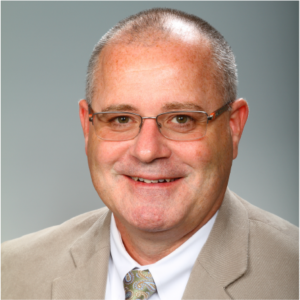 Jon Carnegie
Jon Carnegie
Executive Director, Alan M. Voorhees Transportation Center at Rutgers University
Jon A. Carnegie, AICP/PP, is executive director of the Alan M. Voorhees Transportation Center at Rutgers, The State University of New Jersey and an adjunct member of the faculty at the Edward J. Bloustein School of Planning and Public Policy at Rutgers. Carnegie has more than 25 years of experience in the fields of land use and transportation planning and policy at the municipal, county and regional level. His expertise includes: transit-oriented development; the relationship between land use and transportation; long-range transportation planning; transportation capital finance; transportation equity and environmental justice; driver’s licensing; mobility management; as well as transport security, emergency management and evacuation planning. He also manages the transportation planning and environment portfolio of courses for the National Transit Institute at Rutgers. In this capacity, he develops training curriculum for the public transit industry and teaches professional development courses throughout the country.
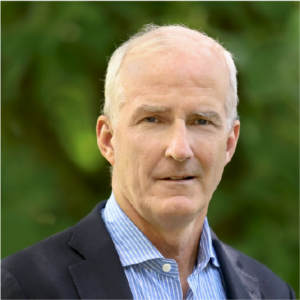
David Crane
Senior Operating Executive, Pegasus Capital Advisors
David Crane is a private equity investor in the field of sustainability and clean energy. Most recently, he acted as the senior operating executive at Pegasus Capital Advisers, a New York City-based private equity firm specialized in this area. He also serves on the Board of Directors of ACWA Power, a leading Saudi Arabian infrastructure company and on the advisory board of JERA, Inc., a joint venture between Tokyo Electric and Chubu Electric. Crane also is an editor-at-large at GreenBiz.
Previously, Crane was CEO of NRG, which he joined in 2003 when it was in Chapter 11 bankruptcy. He grew it over his 12-year tenure to be a Fortune 200 company, engaged in conventional power generation and, after the acquisition of Reliant in 2009, in competitive retail electricity services. He pioneered the yieldco asset class with the IPO of NRG Yield in July 2013. Crane also led NRG to the forefront of next-generation clean energy development as one of the nation’s largest utility scale renewables company, a top four home solar business, the owner of the world’s largest post combustion carbon capture project and the nation’s most extensive level 3 electric vehicle charging network.

 William E. Flederbach Jr.
William E. Flederbach Jr.
Founder, President, and CEO, ClimeCo
William Flederbach cofounded ClimeCo in 2009 and three years later acquired all company shares to assume full ownership. Under his charge, ClimeCo has grown rapidly from a pioneer in N2O abatement projects to a respected leader in the environmental commodities market. Today, the company employs more than 20 professionals throughout the United States and Canada. Prior to founding ClimeCo, Flederbach worked in the international carbon markets, holding senior management positions at MGM International and AgCert. Before that, he founded and led the air quality management practice for OBG, a private engineering consulting firm. Flederbach holds a Bachelor of Science in meteorology from the Pennsylvania State University and an executive Master of Business Administration in finance and marketing from the Smeal College at the Pennsylvania State University. He enjoys the outdoors and frequently is found hiking with his wife and dogs, snow shoeing, cross country and downhill skiing, golfing, boating, and motorcycle riding. He loves his international family of Rotary Exchange kids, including his “kids” from France, Turkey, Germany and Slovakia, to name a few!
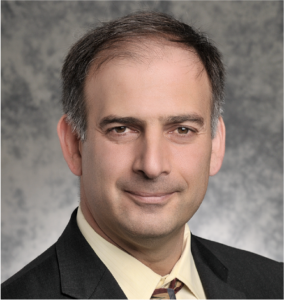
Julio Friedmann
CEO, Carbon Wrangler, LLC
Julio Friedmann is the CEO of Carbon Wrangler, LLC, and a Distinguished Associate at the Energy Futures Initiative. He recently served as Principal Deputy Assistant Secretary for the Office of Fossil Energy at the Department of Energy. He was responsible for DOE’s R&D program in advanced fossil energy systems, carbon capture, and storage (CCS), CO2 utilization, and clean coal deployment. His expertise includes Large-Scale Carbon Management, CO2 removal, CO2 recycling, Oil and Gas systems, international engagements in clean fossil energy, and inter-agency engagements within the US government. He has also held positions at Lawrence Livermore National Laboratory, including Senior Advisor for Energy Innovation and Chief Energy Technologist, is a non-resident fellow at Columbia Univ. Center for Global Energy Policy, and serves as a special advisor to Total SA and the Global CCS Institute. He was recently named as a Senior Fellow to the Breakthrough Institute and a Stanford Precourt Scholar.
Friedmann is one of the most widely known and authoritative experts in the U.S. on carbon removal (CO2 drawdown from the air and oceans), CO2 conversion and use (carbon-to-value), and carbon capture and sequestration. His expertise includes technology, policy, and operations. In addition to close partnerships with many private companies and NGOs, he has worked with the U.S. State Department, the U.S. Environmental Protection Agency, and the U.S. Treasury.
Friedmann received his Bachelor of Science and Master of Science degrees from the Massachusetts Institute of Technology (MIT), followed by a Ph.D. in Geology at the University of Southern California. He worked for five years as a senior research scientist at ExxonMobil, then as a research scientist at the University of Maryland.
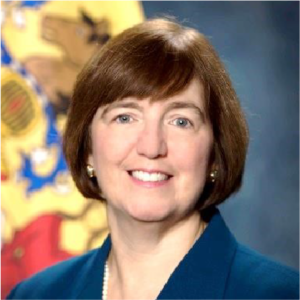 Jeanne Fox
Jeanne Fox
former President of the New Jersey Board of Public Utilities
Jeanne Fox is Columbia’s School of International and Public Affairs Adjunct Professor (since ‘15)) & co-founder/Board member of the non-profit Center for Renewables Integration. She served as NJBPU Commissioner (1/02-9/14) and as President and Governor’s Cabinet member (1/02-1/10).
Under President Fox’s leadership NJBPU became a national leader in developing cutting-edge clean energy policies, promoting energy efficiency & renewable energy, including creating the first SREC. She has received numerous awards in recognition of her innovative and effective leadership.
She is a member of: Carnegie Mellon’s Center for Climate Energy Decision-Making Advisory Board; Rutgers’ Energy Institute’s Advisory Board; GRID Alternatives Tri-State Board; Rutgers Trustee Emerita; Douglass College Alumnae Board; NJ Women’s Political Caucus Board; NJ AARP Executive Council; and NJ Girl Scouts Development Committee.
Ms. Fox was active with the National Association of Regulatory Utility Commissioners (NARUC) as Board member (03/14); Energy Resources and Environment Committee (Chair & Vice Chair); Critical Infrastructure Committee (Vice Chair).
Commissioner Fox’s Board service included: Mid-Atlantic Conference of Regulatory Utilities Commissioners President; National Academy of Sciences Panel on Public Participation in Environmental Assessment and Decision-making as well as Panel on Resiliency of Transmission & Distribution System; Electric Power Research Institute’s (EPRI) Advisory Council; EPRI’s Energy Efficiency & Grid Modernization Advisory Group Chair; USDOE’s Electricity Advisory Committee; Regional Greenhouse Gas Initiative (RGGI) Board.
Jeanne Fox was USEPA Region 2 Administrator (94/01) and NJDEP Commissioner & Deputy Commissioner (91/94). She was Adjunct Professor at Rutgers (01; 16/17) and at Princeton (01; 16/17).
Jeanne graduated cum laude from Douglass College, Rutgers University; received a JD from Rutgers Law School.
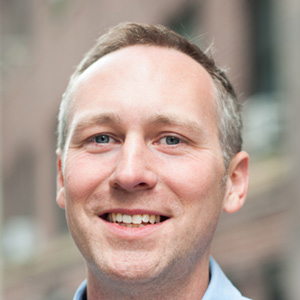
Robert Freudenberg
Vice President for Energy and Environment, Regional Plan Association
Robert Freudenberg is vice president of RPA’s energy and environmental programs, leading the organization’s initiatives in areas including climate mitigation and adaptation, open space conservation and park development, and water resource management. He oversees a comprehensive program of projects and policies to improve public health, quality of life, sustainable development and climate resilience in the New York-New Jersey-Connecticut metropolitan area. Rob works closely with other RPA staff to integrate these objectives with RPA’s economic, transportation, land use, design and community development initiatives.
Rob has been with RPA since 2006 and most recently served as New Jersey director, where he managed the state program with a focus on sustainability planning and policy. Prior to joining RPA, Rob served as a coastal management fellow at the National Oceanic and Atmospheric Administration, where he focused on policies for the New Jersey Department of Environmental Protection. Rob holds a master’s of public administration in environmental science and policy from the Columbia University School of International and Public Affairs and a bachelor’s in environmental biology from SUNY College of Environmental Science and Forestry.
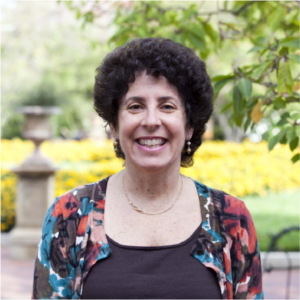
Judi Greenwald
Gerhard R. Andlinger Visiting Fellow in Energy and the Environment
Judi Greenwald is an Inaugural Gerhard R. Andlinger Visiting Fellow at Princeton University’s Andlinger Center for Energy and the Environment. She is also the Principal of Greenwald Consulting LLC, providing energy and environmental expert advice, strategic planning, and policy analysis to clients. Until 2017, Greenwald was the Deputy Director for Climate, Environment, and Energy Efficiency in the U.S. Department of Energy’s (DOE’s) Office of Energy Policy and Systems Analysis. In this capacity, she oversaw technical, economic and policy analysis related to climate mitigation and resilience, environmental protection, and energy efficiency. Greenwald also served as a Senior Advisor to the Secretary for Climate Change. Greenwald has 35 years of experience working on energy and environmental policy. Prior to joining DOE, Greenwald worked for fourteen years at the Center for Climate and Energy Solutions (formerly the Pew Center on Global Climate Change), most recently serving as the Vice President for Technology and Innovation. There she oversaw the analysis and promotion of technology, business, state, regional and federal innovation in the major sectors that contribute to climate change, including transportation, electric power, buildings, and industry.
Greenwald co-convened the National Enhanced Oil Recovery Initiative, was a member of the Advisory Council of the Electric Power Research Institute, and has served on several National Academy of Sciences panels studying vehicles and fuels. She also served on the Resource Panel for the northeast Greenhouse Gas Initiative, the California Market Advisory Committee, as a policy advisor to the Western Climate Initiative, and the Midwest Greenhouse Gas Accord Advisory Group. Prior to her work at the Pew Center, Greenwald served as a senior advisor on the White House Climate Change Task Force and as a member of the professional staff of the U.S. Congress Energy and Commerce Committee, where she worked on the 1990 Clean Air Act Amendments, the 1992 Energy Policy Act, and a number of other energy and environmental statutes. Earlier in her career, Greenwald worked as a Congressional Fellow with then-Senate Majority Leader Robert C. Byrd, an environmental scientist with the U.S. Nuclear Regulatory Commission, and an environmental engineer and policy analyst at the Environmental Protection Agency. Greenwald received a B.S in Engineering, cum laude, from Princeton University, and an M.A. in Science, Technology and Public Policy from George Washington University.
 David Hone
David Hone
Chief Climate Change Advisor, Shell International Ltd.
David Hone works for Shell International Ltd. and is the chief climate change adviser in the Shell Scenarios team.
He joined Shell in 1980 after graduating as a chemical engineer from the University of Adelaide in South Australia. He initially worked for Shell as a refinery engineer in Australia and The Netherlands, before becoming the supply economist at the Shell refinery in Sydney. In 1989, Hone transferred to London to work as an oil trader in Shell Trading and held a number of senior positions in that organization until 2001. In that year, he took up the role of group climate change adviser.
Hone was chairman of the International Emissions Trading Association (IETA) from 2011-2013, a global business organization of some 140 companies and remains a board member. The association focuses on the development of carbon markets. He is also on the board of the Washington based Centre for Climate and Energy Solutions (C2ES) and the board of the Global Carbon Capture and Storage Institute (GCCSI) in Melbourne, Australia.
David posts regular stories on his energy and climate change blog, which can be found at http://blogs.shell.com/. He also contributes to U.S. based blog, The Energy Collective (http://www.theenergycollective.com). He is the author of a current book on climate change, ‘Putting the Genie Back: Solving the Climate and Energy Dilemma’.
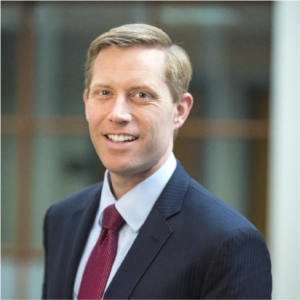 Nathan Hultman
Nathan Hultman
Director, Center for Global Sustainability, University of Maryland
Nathan Hultman is director of the Center for Global Sustainability and associate professor at the University of Maryland School of Public Policy. He is also associate director of the Joint Global Change Research Institute, a collaboration between the University of Maryland and the Pacific Northwest National Laboratory.
From 2014-2016, Hultman worked at the White House on the Obama Administration’s climate and energy policy team. During this time, he helped develop the U.S. 2025 climate target, worked on U.S. bilateral engagements with China, India, Brazil and others, and participated in the international climate negotiations in Lima and Paris. His research focuses on national climate target-setting and assessment, U.S. emissions mitigation policy, energy technology transitions in emerging economies, and international climate policy. He has participated in the UN climate process since the Kyoto meeting, and is a contributing author to the IPCC Fifth Assessment Report and Special Report on Renewable Energy. He teaches courses on climate change policy and energy policy.
Hultman is also a nonresident senior fellow at the Brookings Institution, and was formerly a visiting fellow at the University of Oxford, assistant professor at Georgetown University, Fulbright fellow and NASA Earth Systems Science Fellow in climate sciences. He holds an M.S. and Ph.D. in energy and resources from the University of California-Berkeley and a B.A. in physics from Carleton College.

Aravind Kailas
Research and Innovation Manager, Volvo Group
Dr. Aravind Kailas manages innovation and R&D initiatives to create and commercialize sustainable transport solutions for the Volvo Group. By promoting the company’s creative assets and key technology positions in various fora, Dr. Kailas has been instrumental in establishing the Volvo Group as a trusted thought leader in California. He has spearheaded Volvo’s policy and outreach efforts in the connected and autonomous vehicles spaces, and also spearheaded all truck platooning activities in North America to shape the legislative and market landscapes. Dr. Kailas is also an Instructor at California State University Long Beach. He has previously held positions at University of North Carolina at Charlotte, QUALCOMM, Inc., DOCOMO Innovations, Inc., and General Electric. He is an award-winning and internationally-published subject-matter expert, and has earned degrees in Applied Mathematics and Electrical and Computer Engineering from the University of Wisconsin-Madison and Georgia Institute of Technology.
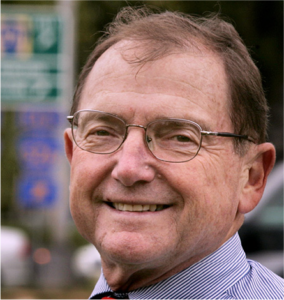 Alain Kornhauser
Alain Kornhauser
Professor of Operations Research and Financial Engineering. Director, Program in Transportation
Alain Kornhauser is professor of Operations Research and Financial Engineering at Princeton University and serves as the director of the transportation program. At Princeton, Professor Kornhauser is in his 47th year on the Princeton faculty in the Fall 0f 2018. He was the Faculty Leader of Princeton’s entries to the 2005 DARPA Grand Challenge and 2007 Urban Challenge and continues his interest in the complete automation of the automobile with particular interest in the autonomous Taxi concept and its potential to transform mass transit and deliver ubiquitous mobility to everyone. He is faculty chair of Princeton Autonomous Vehicle Engineering (PAVE) and the extracurricular undergraduate Smart Driving Car research effort at Princeton, editor of the Smart Driving Cars newsletter (www.SmartDrivingCar.com) and board chair of the Advanced Transit Association (ATRA). Professor Kornhauser completed his 14th NYC Marathon in November 2012 by running his own 26.2 miles during NYC Marathon Sunday in lieu of the cancelled event.
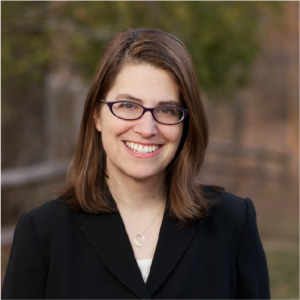
Liz Lempert
Mayor, Princeton, New Jersey
Liz Lempert is the Mayor of Princeton, New Jersey. She is the first mayor of the consolidated Princeton, following the merger of the former Princeton Borough and Township in 2012. She was re-elected in 2016, and is currently serving her second term.
Liz worked as a journalist before turning to politics, including ten years as a producer and editor at the National Public Radio environmental program, Living On Earth. Liz began her local political career as co-chair of the Mercer for Obama campaign where she grew the organization from a dozen volunteers to over 3000 members.
In recent years Princeton has been recognized for its leadership in governmental innovation, bicycle mobility, and environmental sustainability by organizations such as the New Jersey League of Municipalities, the League of American Bicyclists, and Sustainable Jersey. Princeton was named a Champion City in Bloomberg Philanthropies’ 2018 Mayors Challenge, and Princeton often tops national surveys of best small cities and towns for its quality of life and unique sense of place.
Liz received undergraduate degrees in History and Symbolic Systems from Stanford University, and a Masters degree in Science Journalism from Boston University. She and her husband, Ken, have two daughters.

Lynn Loo
Director, Andlinger Center for Energy and the Environment
Theodora D. ’78 and William H. Walton III ’74 Professor in Engineering
Professor of Chemical and Biological Engineering
Yueh-Lin (Lynn) Loo is the Theodora D. ’78 & William H. Walton III ’74 Professor in Engineering, Professor of Chemical and Biological Engineering, and Director of the Andlinger Center for Energy and the Environment at Princeton University. Loo’s research interest is in the processing and development of materials for lightweight and flexible solar cells and circuits, the combination of which is being explored for “smart” windows to increase building and energy efficiencies. More recently, her research expanded into economic modeling of liquid fuels production from non-food biomass after her stint at NewWorld Capital Group, a private equity firm that invests in environmental opportunities.
Having received her Ph.D. in 2001 from Princeton University, Loo returned in 2007 after starting her academic career at the University of Texas at Austin. As the Associate Director of External Partnerships at the Andlinger Center from 2011 to 2015, she launched and led Princeton E-ffiliates Partnership. Loo served as Acting Vice-Dean of the School of Engineering and Applied Science in the spring of 2016.
The author of over 150 publications, Loo has delivered more than 200 invited and plenary lectures globally and she serves on numerous international advisory boards of peer academic institutions, non-governmental organizations, journal publishers, and private companies. She is a fellow of the American Physical Society, a Young Global Leader of the World Economic Forum, and a Strategic Advisor for NewWorld Capital Group. Her scholarly work has been recognized by numerous other accolades, including Sloan and Beckman Fellowships, the John H. Dillon Medal from the American Physical Society, and the Alan P. Colburn Award from the American Institute of Chemical Engineers.
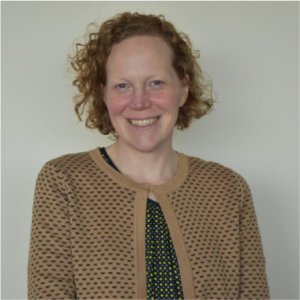 Debbie Mans
Debbie Mans
Deputy Commissioner, New Jersey Department of Environmental Protection
Debbie Mans joined DEP as Deputy Commissioner on February 14, 2018. Before joining the DEP, Deputy Commissioner Debbie Mans served as Baykeeper and Executive Director for the Matawan-based NY/NJ Baykeeper since April 2008. Prior to joining Baykeeper, she served as Environmental and Energy Policy Advisor to then-Governor Jon S. Corzine, assisting in the development of a State Energy Master Plan charting clean energy plans through 2020. She also served as the Governor’s appointment to the State Planning Commission as the Smart Growth Ombudsman. Before working for the Governor, Mans served as Baykeeper’s Policy Director from 2002 to 2006, where she developed policies and programs to promote Baykeeper’s mission.
From 2000 to 2002, Mans worked with the Stony Brook-Millstone Watershed Association as a Policy and Outreach Specialist. In that role, Mans directed activities for a program designed to build New Jersey’s community-based watershed organizations.
Mans graduated from the University of Michigan and Vermont Law School. She is the former Chair of the New Jersey League of Conservation Voters (NJLCV) and a current member of her Borough Council.
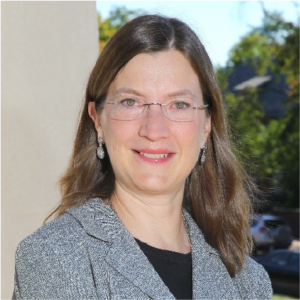
Denise Mauzerall
Professor of Civil and Environmental Engineering and Public and International Affairs, Woodrow Wilson School of Public and International Affairs
Denise Mauzerall is Professor of Environmental Engineering and International Affairs at Princeton University, holding a joint appointment between the Woodrow Wilson School of Public and International Affairs and the Department of Civil and Environmental Engineering. Her research examines linkages between air pollution origin, transport and impacts, including impacts on human health, food security, and climate change. Current research is examining the potential air quality, health and climate benefits of increased electrification using renewable energy in China, evaluating methane leakage from abandoned oil and gas wells, examining the impact of climate change on global air quality, evaluating the effect of air pollution on the ability to generate solar electricity, and evaluating the potential to increase nitrogen use efficiency in agriculture.
Prior to Princeton, Mauzerall was a postdoc at the National Center for Atmospheric Research, a program manager in the Global Change Division of the U.S. EPA where she implemented the Montreal Protocol, and an environmental consultant. She has authored over 70 peer-reviewed papers, and has lectured widely around the world at universities, conferences, and for government and non-governmental agencies. She has been a contributing author to the Intergovernmental Panel on Climate Change (IPCC) which received the Nobel Peace Prize. She is currently on the editorial board of the journal Atmospheric Environment and on the advisory board of the Institute of Advanced Sustainability Science in Potsdam, Germany. In January 2017 she spoke at the World Economic Forum in Davos, Switzerland on opportunities to address air pollution and greenhouse gas mitigation simultaneously in China via increased electrification of the economy with renewable energy. She directs the doctoral program at the Woodrow Wilson School at Princeton University. Mauzerall received a Sc.B. in chemistry from Brown University, a M.S. in environmental engineering from Stanford University, and a Ph.D. in atmospheric chemistry from the Earth and Planetary Science department at Harvard University.
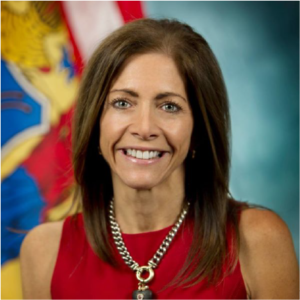 Tammy Snyder Murphy
Tammy Snyder Murphy
First Lady of the State of New Jersey
Tammy Snyder Murphy’s upbringing, career, and worldview have been consistently shaped and defined by family, education, service, and leadership. Whether running for student office during college, thriving in a competitive and male-dominated industry, starting and working with nonprofits, or joining the Women’s March in Trenton, Tammy has always believed in problem-solving through coalition-building and participation.
Tammy and Governor Philip D. Murphy have been married for 23 years and together have four children: Josh, Emma, Charlie, and Sam.
A transformative experience for the Murphy family was proudly representing the United States in the Federal Republic of Germany. Tammy, individually and together with her husband, spoke and led on behalf of the United States of America. She chaired meetings, gave speeches, and hosted meals and receptions, strengthening our nation’s relationship with a critical ally while impacting the lives of thousands of Germans and Americans.
Upon returning to New Jersey, Tammy and Phil realized that the incredible state they called home was in need of bold new leadership. Together, they founded a think tank to explore ways to help grow the middle class and jumpstart New Jersey’s economy. Most recently, Tammy has been energized and inspired traveling the state and meeting New Jerseyans to hear their concerns, both with Phil and as his surrogate, utilizing her experience in the private and nonprofit sectors to work through policy ideas and solutions, and supporting and advising the Governor on his transition.
A graduate of the University of Virginia (B.A., English and Communications, 1987), Tammy currently sits on the University’s Board of Visitors. She also serves as Secretary and charter member of The Climate Reality Action Fund, an organization founded by former Vice-President Al Gore. Over the years, Tammy has worked with non-profits, a think-tank, and other organizations focused on the environment, education, health care, youth and family services, as well as the arts and trans-Atlantic relations. Tammy previously worked in finance in the U.S. and Europe and has traveled extensively throughout the world living overseas in each of London, Frankfurt, Hong Kong, and Berlin. She speaks German and some Italian.
As First Lady, Tammy will continue being a partner to Phil as he works with Lieutenant Governor Sheila Oliver to tackle the formidable challenges facing the state and its incredible residents.
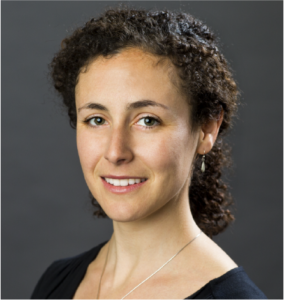 Hannah Pitt
Hannah Pitt
Research Analyst, Rhodium Group LLC
Hannah Pitt is a Research Analyst in the Energy & Natural Resources team at Rhodium Group. Hannah focuses on analyzing energy markets and policy, and on quantifying the impacts of climate change on human systems. Before joining Rhodium, Hannah supported efforts to design and implement climate mitigation strategies in developing countries as a Senior Policy Analyst at the Center for Clean Air Policy, a nonprofit think tank in Washington, D.C. Previously, she contributed to economic development research at the Yale University Economic Growth Center and the Institute for Financial Management and Research. Hannah has a Bachelor’s degree in Economics and Environmental Science from Northwestern University and an Master’s degree in International Development from the Harvard Kennedy School.
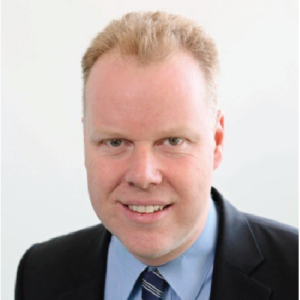 Martin Powell
Martin Powell
Head of Urban Development, Siemens
Martin leads the Urban Development practice for Siemens at the Centre of Competence for Cities. He is also the Cities lead for the Americas. This involves working with Mayors in over 100 cities providing technology advice and support to the cities as they strive to meet tough economic, social and environmental targets and looking at technical models of delivering solutions at scale. He is currently leading the go-to-market approach for digitalization in cities and the concept of an operating model for cities that will allow cities to remain competitive in a time of game-changing trends.
Prior to this, he was the Deputy Mayor of London for Energy & Environment to the former Mayor of London, Boris Johnson, responsible for policy in water, waste, air quality, energy, climate change mitigation and adaptation and biodiversity. He was also the Executive Director for the design and delivery of the City’s environmental programmes.
As Managing Director of Cambridge Management & Research he worked for the Energy Saving Trust and the Institute for Sustainability and was also Special Advisor to the C40 Cities Group chaired by Michael R Bloomberg during his time as Mayor of New York.
An Engineer, he built his career working with organizations as a consultant to structure their projects and programmes and approach to delivery.
He is published on the topic of Project Management and in the current role with two key publications – “Better Cities, Better Life” – and the most recent publication – “Smart Cities – Cities in the Digital Age.”
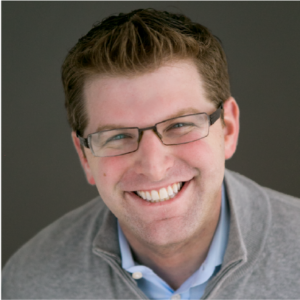 Andrew Rachlin
Andrew Rachlin
Managing Director, Reinvestment Fund
Andrew Rachlin currently serves as managing director for lending and investment. In this position, he oversees business development, underwriting, and transaction structuring across the asset classes in which Reinvestment Fund invests, with a particular focus on short and medium-term debt instruments. He also takes an active role in new product development. Prior to this role, Rachlin served as Reinvestment Fund’s vice president and market leader for Pennsylvania and New Jersey. Before coming to Reinvestment Fund in 2012, he served as interim chief of staff for the School District of Philadelphia, where he was responsible for crafting and initiating implementation of a strategy to restore the district to fiscal balance in the face of a $1.35 billion shortfall. Rachlin has also served as the deputy chief of staff for economic development for the City of Philadelphia, where he developed and oversaw a portfolio of over $40 million in innovative investment products, with a focus on energy efficiency. He has also served as an aide to the executive director of the Port Authority of NY and NJ and as a policy adviser to the transition team of former Newark Mayor Cory Booker. Rachlin holds a bachelor’s degree from Princeton University and a master’s degree in international security from Saint Andrews University.
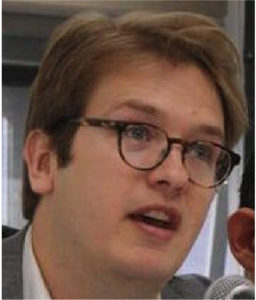
Andrew Salzberg
Head of Transportation Policy and Research, Uber
As Uber’s Head of Transportation Policy and Research, Andrew focuses on making Uber an integral part of the future of urban transportation through research, partnerships, and policy development. He joined Uber in 2013 and became the Senior Operations Manager for New York City, Uber’s largest global market, before joining the global policy team. Prior to joining Uber, Andrew worked at the World Bank supporting public transportation investment projects in East Asia. He holds a bachelor of civil engineering degree from McGill University and Master in Urban Planning degree from Harvard University.
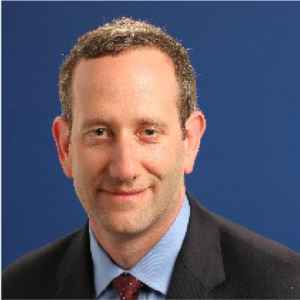
Bruce Schlein
Director, Community Reinvestment Act Business Strategy, Citi
Bruce Schlein, a Director in Citi’s Community Reinvestment Act (CRA) Business Strategy group, where he develops clean energy solutions for low and moderate income households and communities, having recently transitioned from Citi’s Alternative Energy Finance (AEF) group in Capital Markets Origination. Prior to AEF Bruce served as Director of Corporate Sustainability, working with Citi business and operations units to identify and develop solutions for emerging environmental and social issues and opportunities. Previously he worked as a sustainability specialist for Bechtel on petrochemical and civil projects in China and Romania, and for international development agencies including Save the Children, Catholic Relief Services in Bosnia Herzegovina and the U.S. Peace Corps in Papua New Guinea. Bruce is a graduate of Cornell University and holds a Masters in International Affairs from Johns Hopkins Nitze School of Advanced International Studies (SAIS). Bruce serves on the Board of the New York City Energy Efficiency Corporation (NYCEEC).
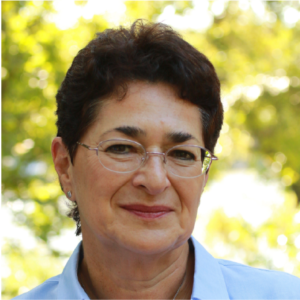
Alison Silverstein
Alison Silverstein Consulting
Alison Silverstein is a consultant, strategist and writer on electric transmission and reliability, energy efficiency and technology adoption issues. Silverstein organized and wrote DOE’s August 2017 “Staff Report on Electric Markets and Reliability,” and co-authored the May 2018 analysis, “A Customer-focused Framework for Electric System Resilience.” She led the 2016 independent expert panel whose report led to transformation of Bonneville Power Administration’s transmission planning process. Silverstein serves as project manager for the North American Synchrophasor Initiative and advises private and governmental clients on advanced technology, regulatory and other issues. She has contributed to the Hawaii Clean Energy Initiative framework and its renewables and reliability integration. She advises private and public clients.
Silverstein served as Senior Energy Policy Advisor to Chairman Pat Wood, III, at the Federal Energy Regulatory Commission from July 2001 through July 2004, co-chairing the 2003 Electric Systems Investigation for the U.S.-Canada blackout investigation and writing the investigation reports. She has worked at the Public Utility Commission of Texas, Pacific Gas & Electric Co., ICF Inc., the Environmental Law Institute, and the U.S. Department of Interior. Silverstein serves on the Boards of the American Council for an Energy Efficient Economy and the Health Alliance for Austin Musicians.
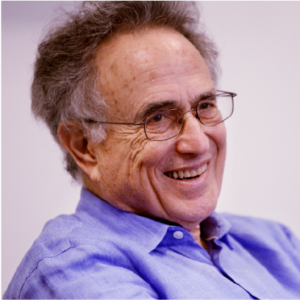
Robert Socolow
Professor of Mechanical and Aerospace Engineering, Emeritus
Robert Socolow is professor emeritus and a full-time member of the senior research staff in the Department of Mechanical and Aerospace Engineering at Princeton University. In his research he seeks new conceptual decade-scale frameworks that are useful for climate change policy. With colleagues he introduced “stabilization wedges,” “one billion high emitters,” “committed emissions,” and “destiny studies.” He is engaged with multi-disciplinary efforts to anticipate key issues associated low-carbon futures, including analyses of energy efficiency in buildings, wind and solar power, nuclear fission and fusion power, CO2 capture and storage from fossil fuels and the air, impacts on the land when biocarbon is priced, and technological “leapfrogging” by developing countries. He is a member of the American Academy of Arts and Sciences, an associate of the National Research Council of the National Academies, a fellow of the American Physical Society, a fellow of the American Association for the Advancement of Science, and the recipient of the Leo Szilard Lectureship Award by the American Physical Society. He earned his Ph.D. from Harvard University in theoretical high energy physics in 1964 and joined the Princeton University faculty in 1971.
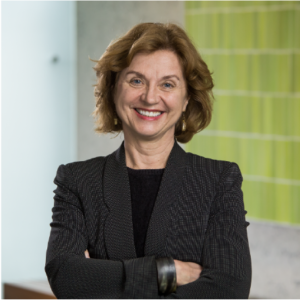
Elke Weber
Associate Director for Education, Andlinger Center for Energy and the Environment
Gerhard R. Andlinger Professor in Energy and the Environment
Professor of Psychology and Public Affairs,
Woodrow Wilson School of Public and International Affairs
Elke Weber is the Gerhard R. Andlinger Professor in Energy and the Environment and Professor of Psychology and Public Affairs at Princeton University. Her research models decision-making under risk, uncertainty, and time delay from a psychological and neuroscience perspective, with applications to both financial and environmental decisions. She was a lead author in the Fifth Assessment Report of the Intergovernmental Panel on Climate Change (IPCC), has served as president of three professional societies (Neuroeconomics, Judgment and Decision Making, and Mathematical Psychology) and is a fellow of the American Psychological Association, the Association for Psychological Science, and the Society for Experimental Psychology. She was elected to the German National Academy of Sciences and to the American Academy of Arts and Sciences and recently received the Distinguished Scientific Contribution Award from the Society for Risk Analysis.
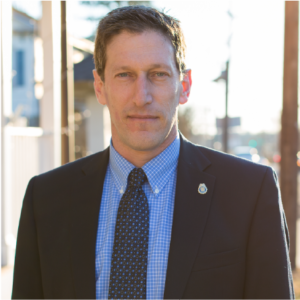
Andrew Zwicker
Member of the New Jersey General Assembly representing the 16th Legislative District
Head, Office of Communications & Public Outreach, Princeton Plasma Physics Laboratory
Assemblyman Andrew Zwicker, the only physicist in the New Jersey Legislature, represents the 16th District. When the voters elected Assemblyman Zwicker, they chose someone with a fresh take on the challenges facing New Jersey — a leader with a science background who makes decisions based on evidence, not ideology or partisanship.
Much of Assemblyman Zwicker’s legislative work centers on promoting economic growth, supporting sustainability and addressing the causes of climate change. His initiatives include increasing support for small business start-ups and incubators, R&D technology transfer and advanced manufacturing and energy technology. He is in the forefront of policies that enhance health and safety and create good jobs through greater development and use of clean, homegrown, affordable energy sources like wind and solar; environmental protection and land conservation; and greater energy efficiency. Legislation he has introduced would help ensure a fair, free and open Internet, with strong privacy protections.
A lifelong New Jersey resident, Assemblyman Zwicker is head of Communications and Public Outreach at Princeton University’s Plasma Physics Laboratory, a world leader in developing an advanced form of energy. At the Lab, he has worked with hundreds of teachers and students, helping to inspire a new generation of scientists and researchers with the promise of technology that serves society’s needs. He taught classes in bioethics and writing, and led plasma physics workshops for college faculty, undergraduate students and advanced high school students. The American Association of Physics Teachers named Assemblyman Zwicker one of the 75 leading contributors to physics education in the US.
Assemblyman Zwicker, 54, was raised in Englewood, in Bergen County, where he was graduated from Dwight Morrow High School. Andrew earned a bachelor’s degree in physics from Bard College and a master’s and Ph.D. in physics from Johns Hopkins University. Andrew and his wife Barbara, an elementary school educator in Hillsborough, live in Kingston, where they raised three children.
The 16th District covers parts of Hunterdon, Mercer, Middlesex and Somerset counties.